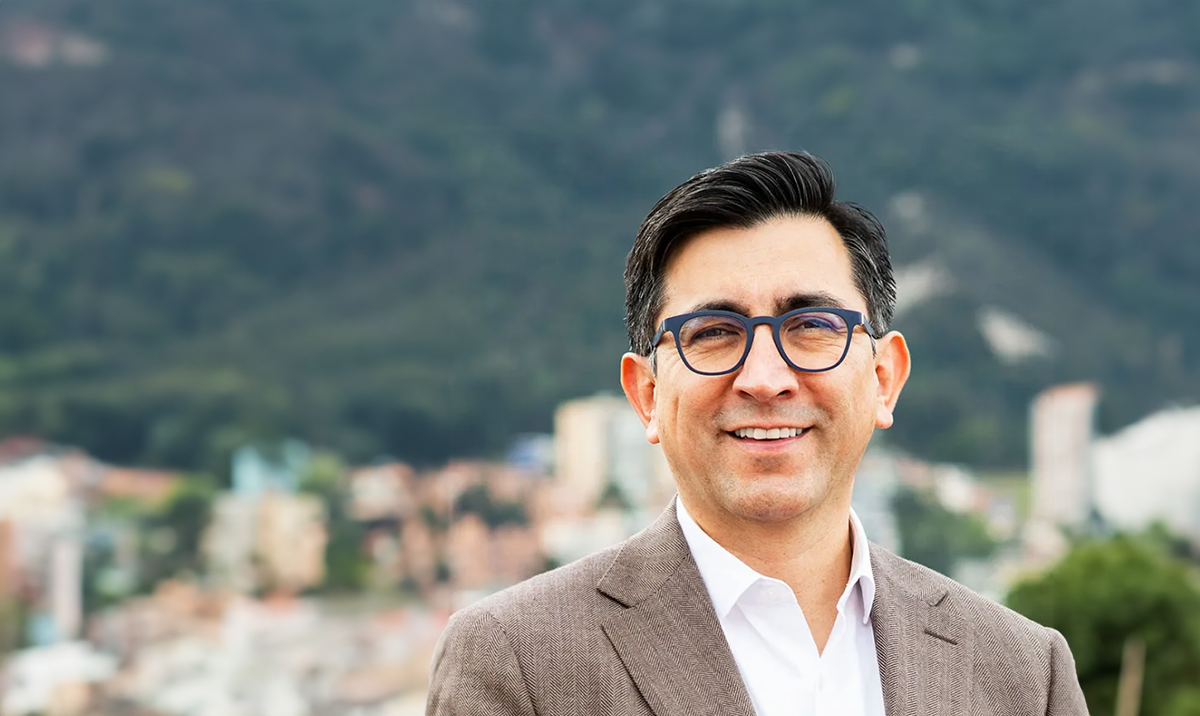
A pivotal moment in Diego Molano’s career came during his year studying for an MBA at IMD. It wasn’t strategy, finance, or marketing, nor was it teamwork or organizational behavior. It involved reading a poem.
“There was a theater class, and it really transformed me because [before] I was pretty bad in terms of public communication. In that class, you have to learn to transmit different feelings. I learned that communication is key and that you have to transmit not numbers, not business, but passions: life, energy.”
With the help of this coaching, he became a confident public speaker, as both a business leader and a politician in his native Colombia. He also credits IMD for his learning “how to communicate, how to listen actively, how to give and receive feedback.”
The way in which the IMD approach taught him and his colleagues through groups and assessed them on the strength of their teamwork has formed his operational template for all management and public roles since.
This has included major public policy programs. Throughout the late 20th Century and until a peace accord in 2016, Colombia was scarred by a devastating civil conflict. Medellin, the second-largest city, had been notorious worldwide as a global center of the violent cocaine trade, but by the 2020s, it had become a renowned tech hub, and growing enterprises throughout Colombia were helping lift many regions out of poverty. This change did not happen by accident, and one of the principal architects was Diego Molano.
As Minister for IT and Communications from 2010-2015, he introduced a range of measures that completed the digital infrastructure and accelerated growth in the online economy. Policies included connecting the whole population to the internet, reducing or eliminating taxes on computers and telecommunications, upgrading from three providers of 3G broadband to six providers of 4G, and supplying schools with tablets and PCs.
In addition, he worked with ministerial colleagues to widen access to banking services, increasing the proportion of the population with a current account from 33% to 85%.
Diego has had the ambition to use technology to connect people since he was a child. His grandmother, like a character from a novel by Colombia’s legendary author Gabriel García Márquez, was the telegraphist in Tasco, a small town in the mountains. She knew the town’s secrets but kept them to herself – an impeccable role model in data security. Young Diego, who often stayed with his grandparents, would carry the telegrams that his grandmother had typed out to the recipients. He learned the importance of conveying the messages and the emotional connection, what they meant to the receivers.
By the 2010s, cyber connections have replaced the young boy as a transmitter of written communication, but human emotions are the same. “I always wanted to use technology to improve people’s lives.”
“You have to transmit not numbers, not business, but passions: life, energy”
His early career included a spell as telecommunications manager for Ascom in Colombia, Canada, and Switzerland, after a first degree in electronics engineering and a master’s in economics. He also had roles in regulatory bodies. Key to effective social development, he has found, is the close cooperation of the public and private sectors. The founding of any business is going to struggle without the essential infrastructure and effective market regulation.
As a government minister, the role was, at times, dangerous. When taking part in the roll-out of internet connections, this included regions still under the control of narco-traffickers or armed guerrilla groups. He had to be appointed as a police officer for the program.
He observes the futility of trying to curb drug use by cutting off supply. There is no easy solution to the problems of consumption and trafficking, but creating legitimate businesses and a thriving economy is perhaps the most valuable contribution.
Since leaving government, he has continued to encourage social and economic development as an adviser on policy and digital transformation and as a partner in a venture capital fund. One enterprise, for example, has involved hiring tiny “mom and pop” stores to be collection centers for e-commerce purchases. This helps with the security of the package, from the customer’s point of view, as well as providing a vital income stream for small businesses. Some 50,000 small businesses have been engaged.
IMD training has provided him with a powerful network of friends and business contacts, whom he frequently calls upon. It is “not only the experience of one year at IMD, it is the life-long experience of being part of IMD.”
He adds: “Two weeks ago, I had an issue about cybersecurity. The top guy in cybersecurity in the US is a classmate of mine. So I was just texting him, and … [he] was available to help me.”
Yet probably the most lasting legacy was the coaching and inspiration during his year in Lausanne. It is poignant that in the land of García Márquez, it was poetry, as well as technology, that foretold the rebirth of a nation.


